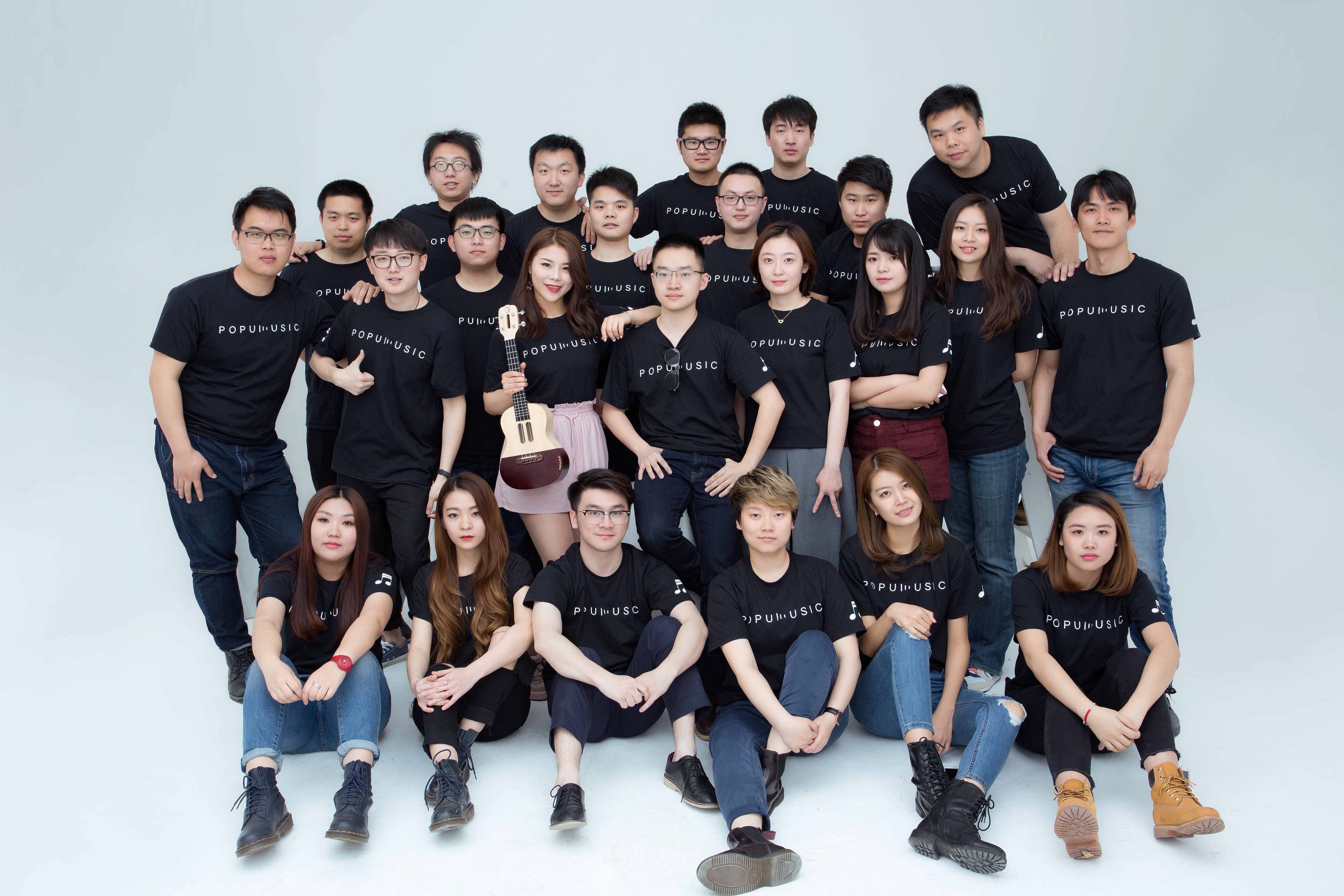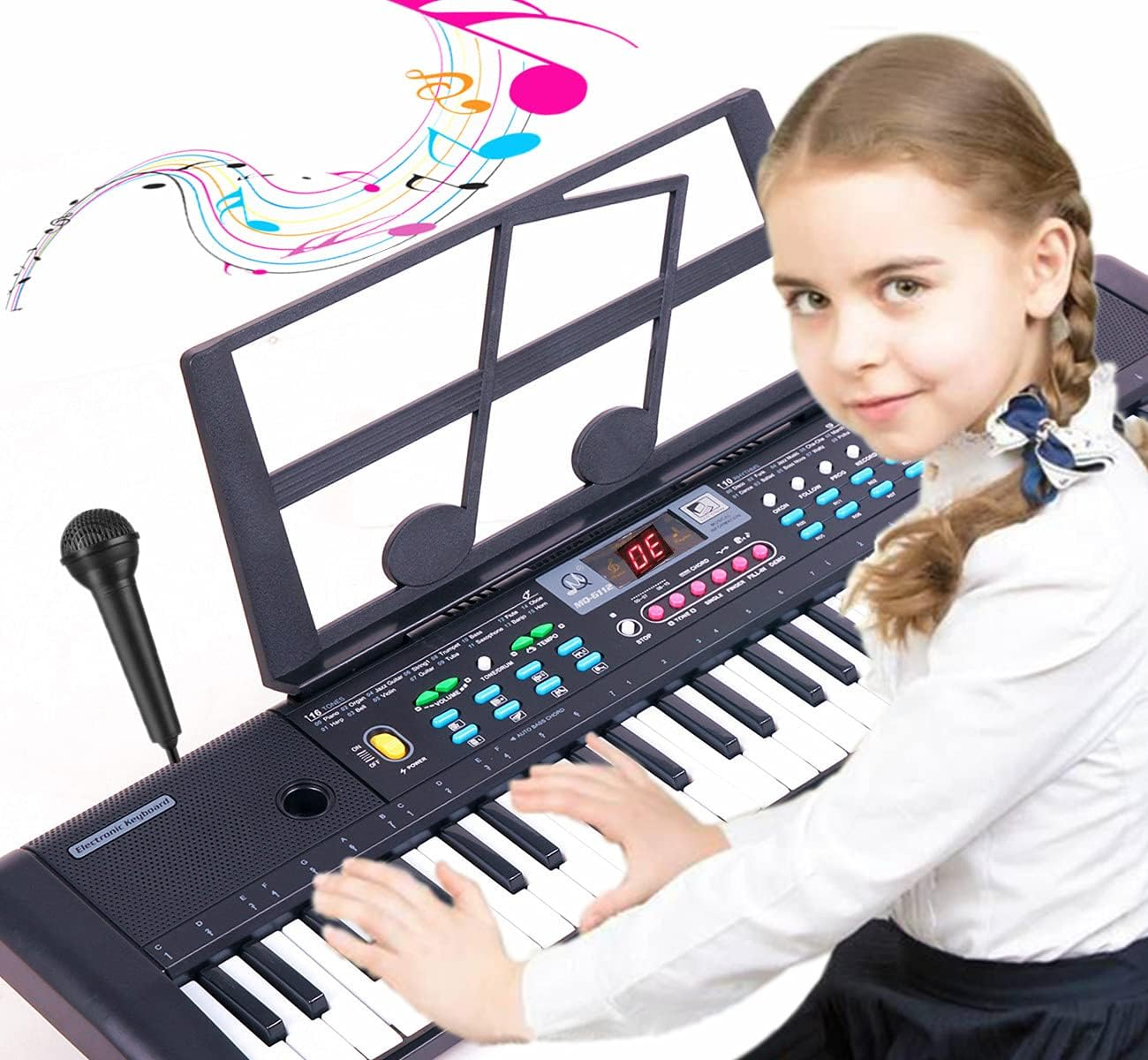
Buying a piano gift for an adult beginner is an act of encouragement. Whether it’s for a friend starting lessons, a partner rekindling an old hobby, or yourself beginning a long-delayed dream, the right gear can make learning smoother—and more fun.
This guide will help you find the best gifts for adult piano beginners under $500 in 2025, with real-world suggestions across digital pianos, learning tools, and creative accessories.
We’ll keep things simple, budget-aware, and focused on what actually helps adults learn. You’ll also see why a smart piano keyboard is emerging as one of the most effective, tech-savvy gift choices for new learners.
Our top pick combines portability, LED guidance, app learning, and quiet headphone practice: the Smart Keyboard—a thoughtful, beginner-friendly gift under $500.
Many adults start piano later in life. Some are seeking mindfulness after work, others want a new creative skill, or they’re rediscovering music after years away. The challenge isn’t motivation—it’s time and structure.
That’s where the right instrument and tools come in.
A good beginner setup should:
When chosen well, the right keyboard or smart piano removes friction—turning a vague dream into a weekly habit.

What it is: A compact smart keyboard that blends LED follow-lights, app lessons, Bluetooth/USB-MIDI, and quiet headphone practice. It’s modular (start small, expand later), so adults can begin comfortably and grow without rebuying. Ideal when you want a complete gift under $500 that makes learning piano as an adult simple and motivating.
Why it works as a gift for adult beginners: ultra-low setup friction, song-first routines, and streak-friendly lessons that fit busy schedules.
|
Advantages |
Disadvantages |
|
LED light-up keys + wait-for-note and loop help total beginners learn fast |
Not a full 88-key weighted action (modular range instead) |
|
Free app lessons, song library, practice tracking—great for self-learning |
Purists may prefer the feel of hammer-action keys from day one |
|
Bluetooth/USB-MIDI for DAWs and online courses; headphones for quiet practice |
Built-in speakers are tuned for practice, not room-filling performance |
|
Modular growth path (add keys later) keeps the first purchase under budget |
Traditional teachers might steer classical students to weighted 88 eventually |
|
Portable and rechargeable—ideal for apartments and small desks |
— |
Best for: Tech-friendly adults, apartment dwellers, anyone who wants an easy, guided start without paying for lessons immediately.
What it is: An entry 88-key digital piano with weighted keys and Yamaha’s clean piano tone in a slim, portable chassis. It’s a safe, traditional choice when tactile realism matters.
Why it works as a gift: It feels closer to an acoustic piano than most budget boards, so the recipient builds proper finger strength and dynamics from the start.
|
Advantages |
Disadvantages |
|
Fully weighted keybed supports long-term technique |
Larger and heavier than compact smart keyboards |
|
Simple, reliable interface—turn on and play |
Fewer built-in learning tools; no light-up guidance |
|
“Set and forget” piano sound that flatters beginners |
App/BT integrations are limited vs. smart boards |
|
Good foundation if the learner may take adult piano lessons later |
Needs a stand/bench to feel “right,” which adds cost/space |
Best for: Adults who want a digital piano with weighted keys and plan to practice traditional repertoire or take in-person lessons.

What it is: An ultra-slim digital piano that delivers fully weighted keys and a compact footprint. A strong value play for learners who want full range without a bulky cabinet.
Why it works as a gift: It balances realism, portability, and price, making it a popular first 88-key for gifts for adult piano beginners under $500.
|
Advantages |
Disadvantages |
|
Fully weighted action in a very thin body |
Learning experience is traditional—no LEDs |
|
Easy to move/store; apartment-friendly |
Speaker output is “practice-level,” not performance-level |
|
Straightforward sounds; minimal menu diving |
USB-MIDI yes, but fewer “smart” features than app-first keyboards |
|
Good stepping-stone to graded literature |
May still need headphones, stand, and pedal to feel complete |
Best for: Budget-minded beginners who want a best beginner digital piano feel in the smallest possible 88-key footprint.

What it is: A light, battery-friendly keyboard piano with Bluetooth audio/MIDI for playing along with tracks and hooking into learning apps. Semi-weighted/light action favors casual play and travel.
Why it works as a gift: It’s fun, truly portable, and integrates with phones/tablets—great for adults who want music to fit around life (not the other way around).
|
Advantages |
Disadvantages |
|
Bluetooth audio/MIDI for lessons, play-along, and DAWs |
61 keys—range limitations for classical pieces |
|
Lightweight; can run on batteries for travel or busking |
Not weighted—touch is lighter than an acoustic piano |
|
Clean Roland sounds; simple interface |
Fewer onboard coaching tools vs. dedicated smart keyboards |
|
Easy to store; low commitment for first-time learners |
May be outgrown sooner if the learner sticks with classical |
Best for: Travelers, casual learners, and creators who want a keyboard piano they’ll actually use every day.

What it is: An affordable 88-key digital piano with solid polyphony, usable built-in voices, and decent onboard speakers. Often bundled well below midrange prices.
Why it works as a gift: A strong spec sheet for the money; pairs well with adult piano lessons near me or online courses.
|
Advantages |
Disadvantages |
|
88 keys + respectable polyphony = room to grow |
Action feel is serviceable but not premium |
|
Good starter sounds; headphone output for quiet practice |
Bulkier than compact smart or 61-key options |
|
USB-MIDI for digital piano online lessons and DAWs |
Learning curve is more “DIY” (no LED guidance) |
|
Often discounted in holiday bundles |
Speakers are fine for practice, less so for big rooms |
Best for: Adults who want full-range keys and decent specs at an accessible price, with the option to add structured lessons later.

If your recipient prefers an authentic piano touch, a weighted-key digital piano is a timeless option. Under $500, a few standout 88-key models deliver realism without bulk.
Weighted keys matter if the goal is long-term piano technique. They build finger strength and dynamic control—ideal for anyone serious about improving.
Not everyone needs 88 keys right away. A 61-key model is enough for casual learning and hobbyists who want portability and lower cost.
Models like the Roland GO:PIANO or Yamaha NP-12 sit well under $400 and are fantastic for smaller homes or apartments.

Pair any instrument with structured lessons, and progress doubles. A short-term online course or an app subscription makes a perfect supplementary gift.
Adding even a three-month subscription shows thoughtfulness—and keeps the gift useful long after unwrapping.
A must-have for apartment dwellers or shared homes. Look for closed-back headphones designed for instruments, not just consumer audio.
Pairing headphones with a beginner keyboard lets adult learners practice late nights without disturbing anyone.
These under-$50 add-ons make any beginner setup more comfortable and complete:
Each accessory adds comfort and commitment—the perfect complement to any digital piano gift.
Physical books add depth to app learning. Consider gifting:
For extra thoughtfulness, include a note: “A new piece every month—your future playlist starts here.”
The ideal combo for most adults is a smart portable keyboard with app-based lessons. It balances hands-on learning and digital convenience, removing the fear of “starting too late.”
If you want to give one gift that feels complete and future-proof, a smart keyboard with Bluetooth connectivity, lighted guidance, and headphone practice is unbeatable.
Example Setup:
Instrument: PopuMusic Smart Keyboard
Learning: PopuMusic App (free) or Flowkey (3-month trial)
Add-on: Lightweight studio headphones
Why it works: Under $500 total, portable, and self-contained. Learners can start within five minutes of opening the box.
If you’re gifting experiences instead of things, adult piano lessons are deeply meaningful. Many local teachers offer packages of 4–6 sessions for $200–$400.
Search “adult piano lessons near me” for options that match your schedule. Alternatively, hybrid models combine in-person lessons with app-based practice—ideal for busy professionals.
Even one month of lessons can teach fundamentals: posture, hand shape, rhythm, and reading notation. Combine that with a smart or digital piano for the perfect “starter kit” for adult learners.
Spending more doesn’t guarantee faster progress. In the $300–$500 range, you can find:
Below $250, compromises start to hurt progress (non-velocity keys, no sustain input). Above $800, features mostly benefit intermediate players.
That’s why under-$500 gifts hit the real beginner sweet spot—affordable, motivating, and ready to play out of the box.
No. Adults often learn faster conceptually—they just need tools that fit busy schedules. App-guided lessons and LED keyboards make starting intuitive and stress-free.
Not necessarily. For early stages, 61 or 73 keys are enough. Expand later when you explore classical pieces or wider two-hand repertoire.
A smart keyboard connects to apps, offers guided lessons, and often has LED follow-lights. A digital piano focuses on traditional playing feel. Both are excellent; choose based on your learning goals.
Self-learning with an app works for the first 3–6 months. After that, occasional lessons can refine technique.
The best gifts for adult piano beginners under $500 are ones that reduce barriers: setup time, volume, and confusion. Look for tools that make starting easy and progress visible.
If you want a gift that combines instrument, lessons, and portability in one box, a smart piano keyboard is unbeatable for adults learning in 2025.
Compact, quiet, and guided by LED lights, it bridges traditional piano with modern learning.
Read more

The PopuMusic Story: From a Simple Idea to a Global Music Movement.
Why We Founded PopuMusic Popumusic was founded in 2015 by Bruce Zhang, a professional music producer with a lifelong passion for making music creation truly free. Ever since Popumusic was fou...

Best Keyboard Gifts for Kids (Ages 6–12) with Games & Lessons
The best gift for a child is one that teaches and inspires. For kids between ages 6 and 12, a music keyboard can unlock creativity, focus, and joy—all while making learning feel like play. But not ...